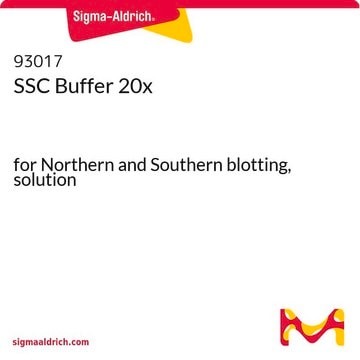Wichtige Dokumente
A6685
(S)-trans-2-Amino-4-(2-aminoethoxy)-3-Butensäure-Hydrochlorid
BioReagent, suitable for plant cell culture, powder
Synonym(e):
(S)-trans-2-Amino-4-(2-aminoethoxy)-3-butensäure -hydrochlorid, L-α-(2-Aminoethoxyvinyl)-glycin -hydrochlorid, AVG-HCl
About This Item
Empfohlene Produkte
Produktlinie
BioReagent
Qualitätsniveau
Form
powder
Methode(n)
cell culture | plant: suitable
Löslichkeit
H2O: 2 mg/mL
Anwendung(en)
agriculture
Lagertemp.
−20°C
SMILES String
Cl[H].NCCO\C=C\[C@H](N)C(O)=O
InChI
1S/C6H12N2O3.ClH/c7-2-4-11-3-1-5(8)6(9)10;/h1,3,5H,2,4,7-8H2,(H,9,10);1H/b3-1+;/t5-;/m0./s1
InChIKey
ZDCPLYVEFATMJF-BTIOQYSDSA-N
Suchen Sie nach ähnlichen Produkten? Aufrufen Leitfaden zum Produktvergleich
Anwendung
Biochem./physiol. Wirkung
Haftungsausschluss
Signalwort
Danger
H-Sätze
Gefahreneinstufungen
Eye Dam. 1 - Skin Irrit. 2 - STOT SE 3
Zielorgane
Respiratory system
Lagerklassenschlüssel
11 - Combustible Solids
WGK
WGK 2
Flammpunkt (°F)
Not applicable
Flammpunkt (°C)
Not applicable
Persönliche Schutzausrüstung
dust mask type N95 (US), Eyeshields, Gloves
Analysenzertifikate (COA)
Suchen Sie nach Analysenzertifikate (COA), indem Sie die Lot-/Chargennummer des Produkts eingeben. Lot- und Chargennummern sind auf dem Produktetikett hinter den Wörtern ‘Lot’ oder ‘Batch’ (Lot oder Charge) zu finden.
Besitzen Sie dieses Produkt bereits?
In der Dokumentenbibliothek finden Sie die Dokumentation zu den Produkten, die Sie kürzlich erworben haben.
Kunden haben sich ebenfalls angesehen
Unser Team von Wissenschaftlern verfügt über Erfahrung in allen Forschungsbereichen einschließlich Life Science, Materialwissenschaften, chemischer Synthese, Chromatographie, Analytik und vielen mehr..
Setzen Sie sich mit dem technischen Dienst in Verbindung.














